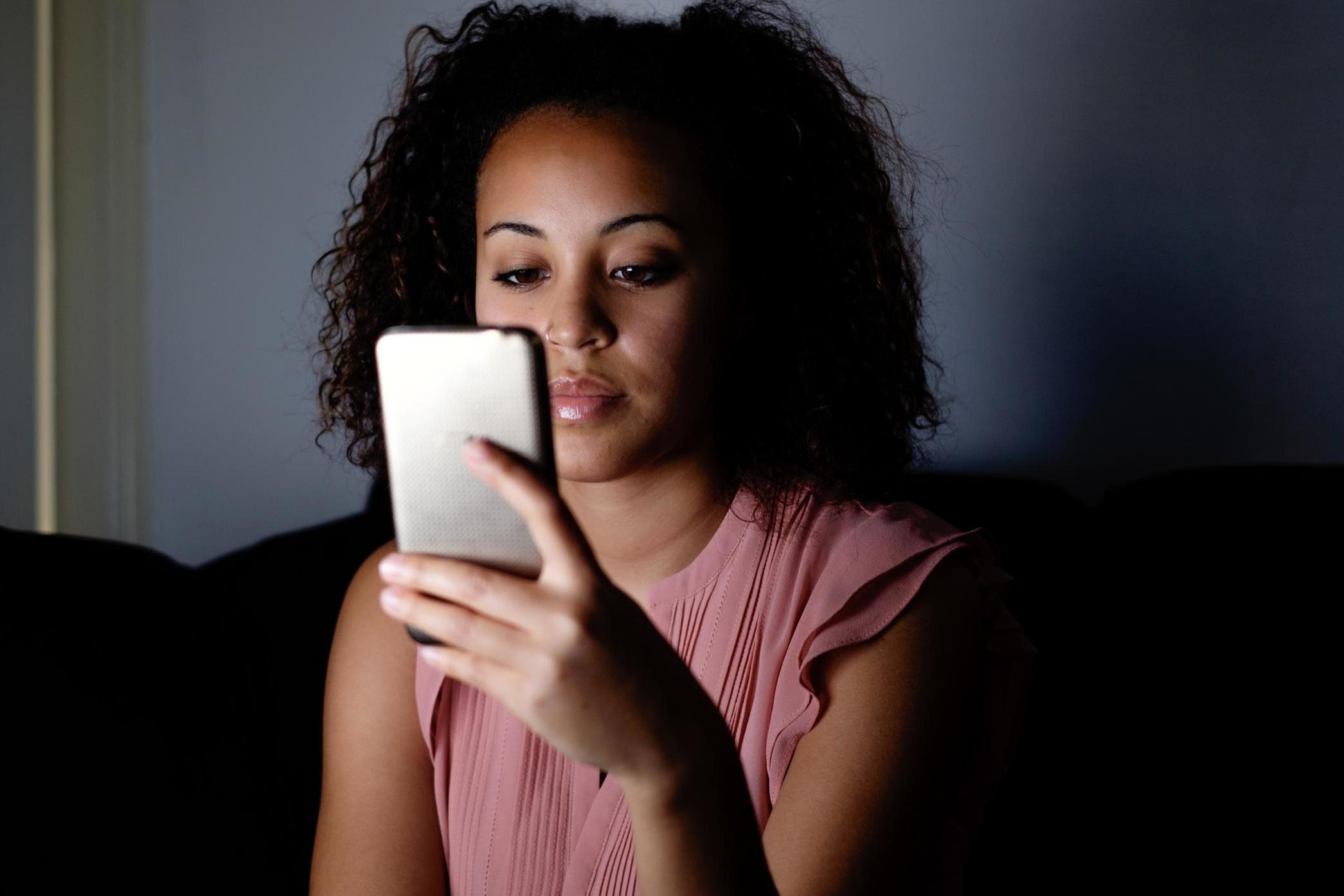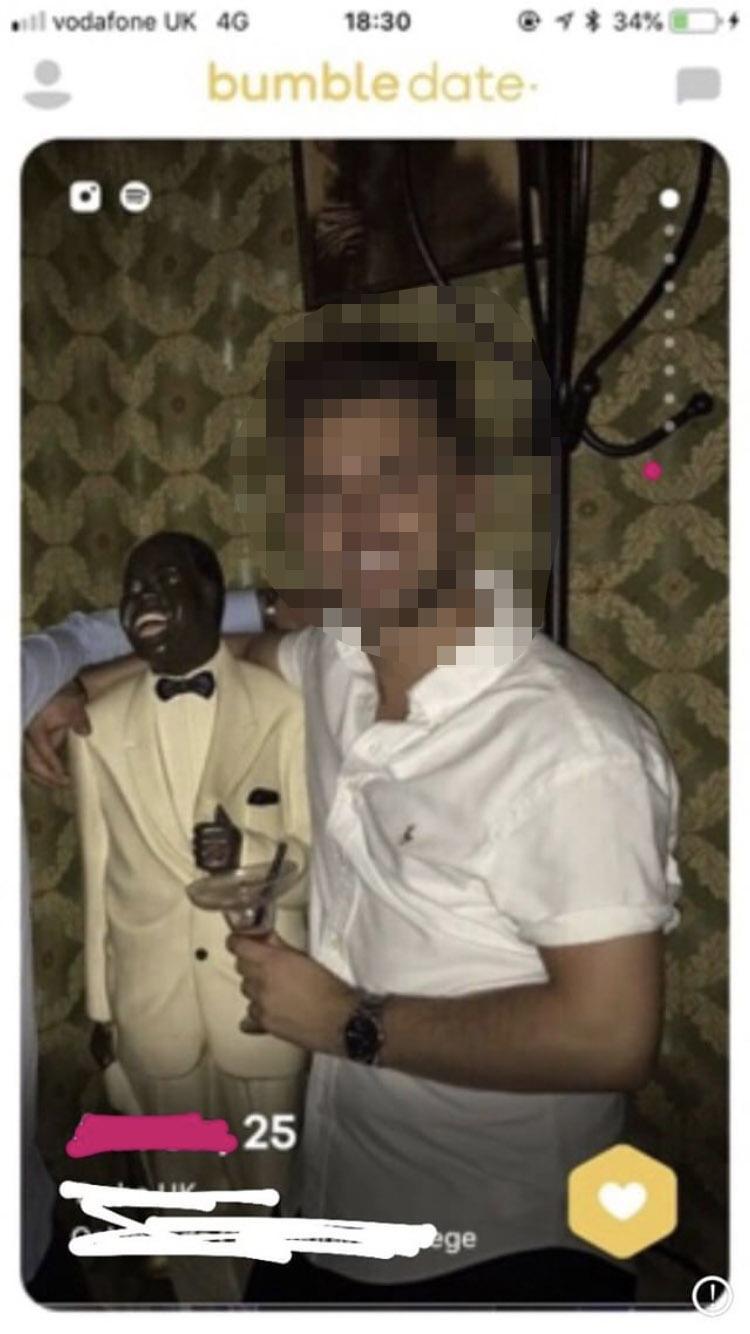Racism is rife on dating apps – where does it come from and how can it be fixed?
Discrimination thrives in online communities where stereotypical assumptions and racist remarks are often passed off as sexual preferences

Your support helps us to tell the story
From reproductive rights to climate change to Big Tech, The Independent is on the ground when the story is developing. Whether it's investigating the financials of Elon Musk's pro-Trump PAC or producing our latest documentary, 'The A Word', which shines a light on the American women fighting for reproductive rights, we know how important it is to parse out the facts from the messaging.
At such a critical moment in US history, we need reporters on the ground. Your donation allows us to keep sending journalists to speak to both sides of the story.
The Independent is trusted by Americans across the entire political spectrum. And unlike many other quality news outlets, we choose not to lock Americans out of our reporting and analysis with paywalls. We believe quality journalism should be available to everyone, paid for by those who can afford it.
Your support makes all the difference.Racism manifests itself in all walks of life, but in online environments, where conversations are unmoderated and identities are curated, abuse is rife.
Now, major dating apps are putting protections in place to combat the tide of horrific racial abuse directed towards people of colour on their platforms, which thrives under the guise of it being “just another sexual preference”.
While some users state “zero-tolerance policies” towards particular ethnicities in their bios, others infer racial fetishes over conversation, which to many is just as offensive.
Dating app users reveal to The Independent that they’ve been called everything from dominants to primates, with one black woman revealing that a potential suitor got in touch because he wanted a “taste of jungle fever”.
For Stephanie Yeboah, dating apps have been plagued by racism of a fetishising nature, with men she speaks to making perverse assumptions based on her black heritage.
“Some blatantly exclaim that they would want to be in a relationship [with me] to ‘get a taste of jungle fever’ and to see whether black women are ‘as aggressive in bed as they’ve heard’,” she tells The Independent.
“Comments such as these are extremely dehumanising to myself and other black women who are only looking for companionship,” she continues.
“It seems to suggest that black women are only good for one thing, and cites back to previous ideologies of black people being compared to primates; as primal and feral, hyper-sexualised creatures. It’s very hurtful.”
Writing on her blog, Nerd About Town, Yeboah reveals she often receives messages such as “you look like a dominant black queen” and “I have such a thing for chocolate”.
This form of racial judgement is complex, mostly because it’s often conflated with supposedly positive portrayals of blackness, otherwise known as “positive racism”, as explained by Yomi Adegoke and Elizabeth Uviebinene in their new book, Slay in Your Lane: The Black Girl Bible, which examines the prejudices faced by black women in the UK.
Typically, the authors explain, this transpires via a number of stereotypes surrounding black women – eg, “black girls have better asses”.
This can be a particularly damaging form of racism because it relies on problematic tropes surrounding blackness that deny autonomy, Adegoke and Uviebinene argue.
One 26-year-old woman tells The Independent she’s faced this form of discrimination due to her Mauritian and Asian origins.
“On Tinder, a guy messaged me saying, ‘I have never shagged an Asian before, let’s meet so I can tick it off’,” she says.
Occasionally, racism on dating apps is more brazen than this.
For example, as illustrated in the below screenshots, there are some profiles which explicitly state racial preferences (eg, “no African girls”).

However, racism on dating apps is not simply a case of being judged by the way you look.
Having an ethnic name can also provoke racist remarks, says Radhika Sanghani.
“There are questions about where I’m from, whether I’m ‘religious lol’, comments about how they ‘also have a friend with the same name!’ and others that just go to the heart of it: ‘Radhika, are you Indian?’.”

Those in the LGBT+ community experience some of the worst racial abuse on dating apps – there’s even an entire Twitter account dedicated to showcasing the racism on Grindr – which launched in 2009 as a dating platform exclusively for gay people.
The comments posted on @GrindrRacism are shocking and range from the blunt (“only into white guys”) to the downright hideous: “shouldn’t [black people] be in the fields, picking cotton?”
Speaking to The Independent, comedian and podcast host James Barr reveals that he regularly comes across racist remarks on Grindr, which are often passed off as sexual preferences.
“I saw a guy on Grindr recently who’s profile read: ‘No whites. Sorry that’s just my preference’,” he said.
In a bid to combat this, Grindr is releasing a new initiative in September called Kindr, which comes after model and activist Munroe Bergdof called on the company to address the hate speech circulating on the app.
Speaking to The Independent, Landen Zumwalt, Grindr’s head of communications, reveals that Kindr is a campaign built around “education, awareness and specific policy changes in the Grindr app that will help foster a more inclusive and respectful community on the platform”.
Similar measures are being put in place at Bumble too, which was originally launched as a dating app for heterosexual couples that encouraged women to “make the first move”.
Speaking to The Independent, Bumble’s vice president of international marketing and communications Louise Troen reveals that the app has teamed up with the Anti-Defamation League (ADL), which focuses on fighting anti-semitism and hate, to determine what classifies as hate speech within the online space, Troen tells us.
“We also work closely with varying systems and technologies to flag certain words and phrases that signal hate speech or racist or sexist themes,” she adds.
It’s unclear just how successful such measures will be in assuaging a problem as systemic as racism, which is rooted in unconscious stereotypes, explains Professor Binna Kandola, senior partner at Pearn Kandola and author of Racism at Work: The Danger of Indifference.
“As the decision to approach someone on a dating site is largely based on appearance, we also need to be aware of the stereotypes associated with beauty,” he tells The Independent.
“Unconscious biases held within society dictate that white men, for example, are seen as being analytical and hard working, while white women are seen as empathetic and caring.
“Black men, on the other hand, are seen as hyper-masculine, and black women are seen as more aggressive than white women, thanks in part to the ‘angry black woman’ persona that has become prominent in popular culture.”
Research supports this theory: in 2014, dating website OkCupid ran a study that revealed black women received the fewest messages of all its users.
The study also revealed that of all ethnicities, men are least likely to respond to “likes” on OkCupid from black female users.
With the aforementioned stereotypes in mind, Kandola says it’s not surprising that black women are the least prevalent demographic on dating apps.
Meanwhile, the study also found that compared to the site’s black, Asian or minority ethnic users, white users received the most messages, revealing that the prejudice is widespread.
Again, this is something that Kandola puts down to unconscious biases, which portray Asian men as slightly more feminine and black men as ultra-masculine.
“We need to address the stereotypes associated with beauty,” he continues.
“If you were to simply search the word ‘beauty’ on Google Images, the vast majority of the results would be of white women. If we saw more women of ethnic minority backgrounds having more of a prevalence within the beauty and fashion industry, we would shift the connotations of what beautiful means.”
Join our commenting forum
Join thought-provoking conversations, follow other Independent readers and see their replies
Comments